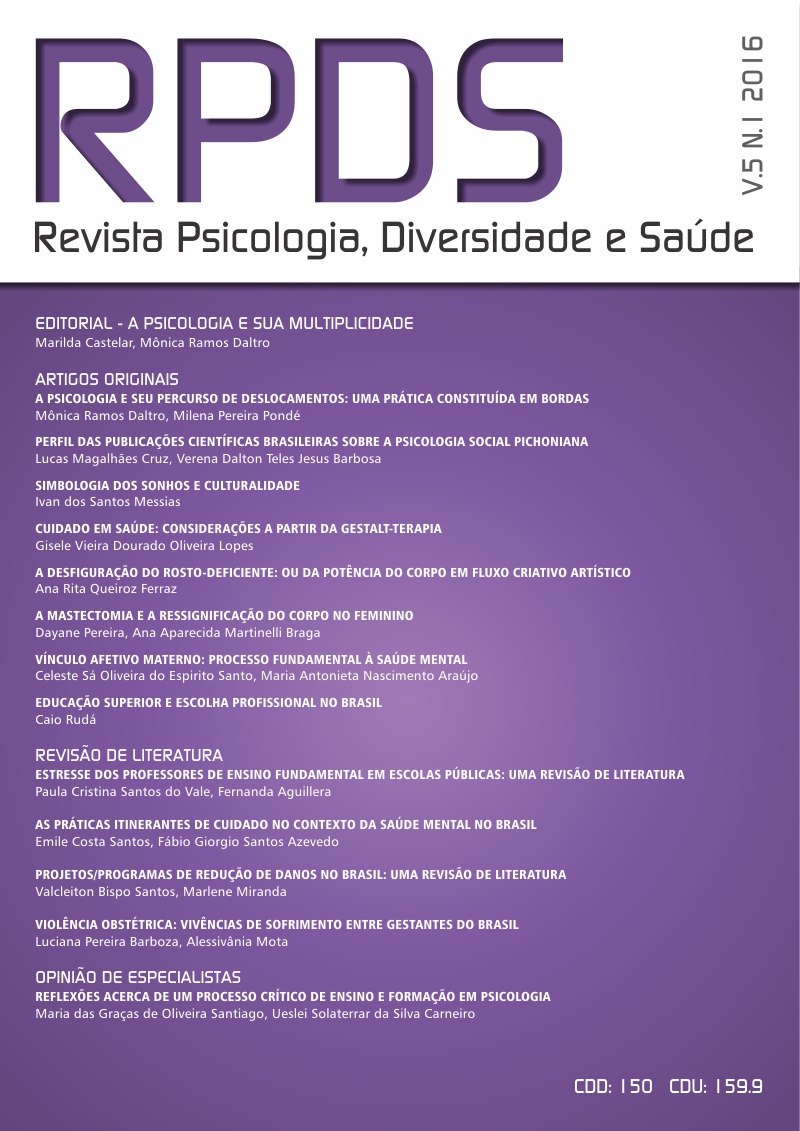HARM REDUCTION PROGRAMS/PROJECTS IN BRAZIL: A LITERATURE REVIEW
DOI:
https://doi.org/10.17267/2317-3394rpds.v5i1.841Keywords:
Project, Harm Reduction, Drug usersAbstract
The Harm Reduction (HR), as a public health strategy, refers to policies, programs and practices that primarily aim to minimize biological, psychosocial and economic risks and damage, caused or secondary to the use / abuse of legal and illegal drugs, without necessarily requiring from the user a reduction or withdrawal. In Brazil, the HR was adopted as a public health strategy for the first time in Santos-SP in 1989, but only in 1995 the PRD-CETAD in Salvador / BA had RD actions financed by international organizations ir order to the fight against the HIV / AIDS epidemic. In 2003 the federal government recognized the HR strategies while caring for the users of alcohol and other drugs. They were then added to the National Program of Integrated Management to Users of Alcohol and other Drugs. Thus, the government started to fund HR actions. This article aims to conduct a literature review in order to identify, from the published papers, HR programs; projects, the target audience, location and time of operation of such actions so far. To do so, 10 articles that used the database of HR programs/projects for the period between 1995 and 2014 were selected. The methodology used was the systematic review conducted in the database of the Virtual Health Library (VHL). In Results and Discussion, the papers were organized in order to respond to specific objectives. In conclusion, questions were raised about the HR in Brazil and worldwide.Downloads
Download data is not yet available.
Downloads
Published
05/18/2016
Issue
Section
Review Studies
How to Cite
Santos, V. B., & Miranda, M. (2016). HARM REDUCTION PROGRAMS/PROJECTS IN BRAZIL: A LITERATURE REVIEW. Revista Psicologia, Diversidade E Saúde, 5(1). https://doi.org/10.17267/2317-3394rpds.v5i1.841



